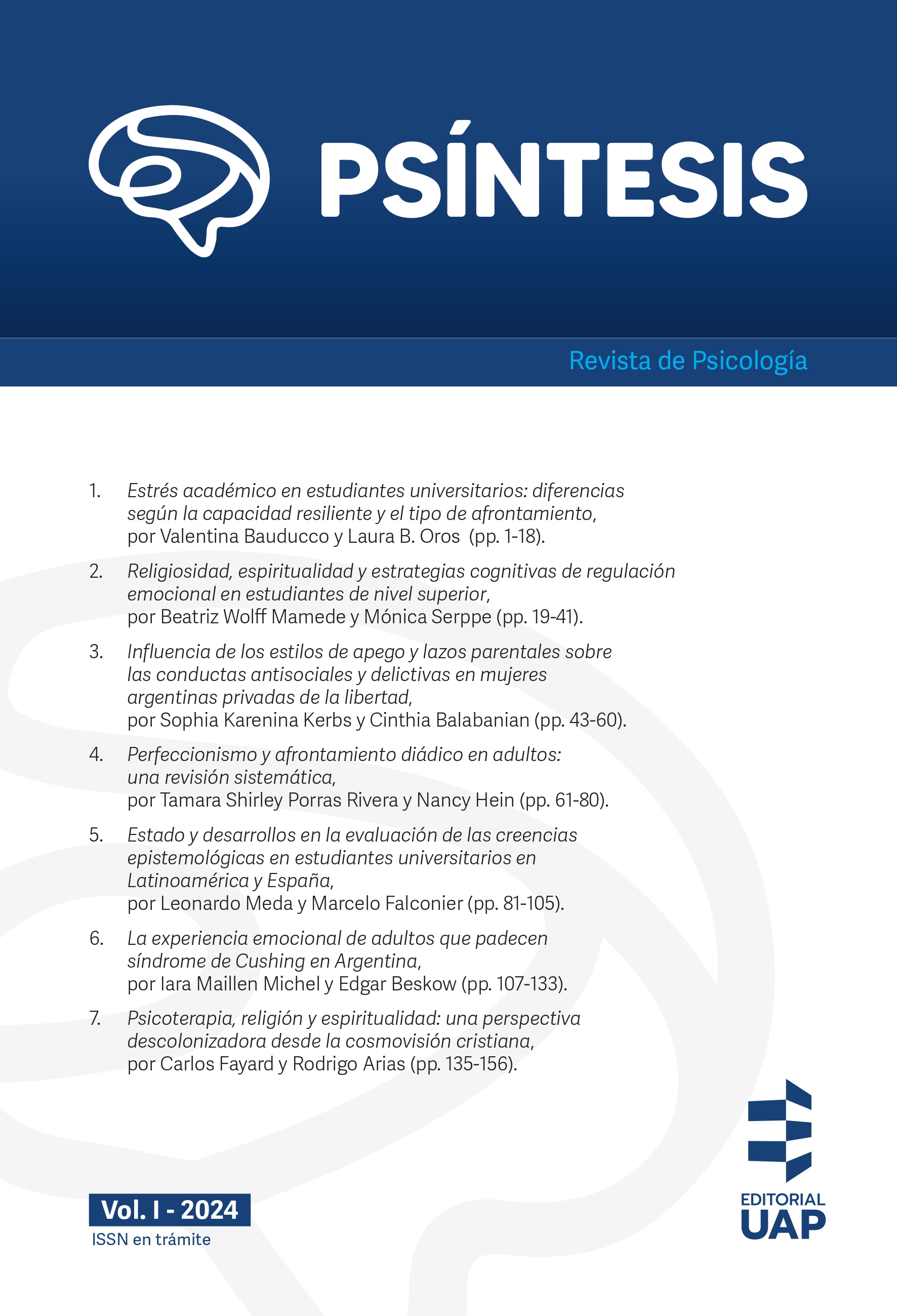The influence of attachment styles and parental bonding on antisocial and criminal behavior in Argentine women deprived of liberty
Keywords:
Attachment — Parenting styles — Antisocial behaviors — Criminal behaviors — WomenAbstract
The present study aims to explore attachment styles and parental bonds as predictors of antisocial and criminal behaviors in Argentine women deprived of liberty, specifically in penal units, through the application of three instruments and an ex post facto cross-sectional study. The sample of participants consisted of 70 Argentinean women deprived of liberty between 20 and 66 years old, housed in the women’s penal unit No. 6: “Concepción Arenal” (Paraná, Entre Ríos, Argentina), and in penal unit No. 4: “Instituto de Recuperación de Mujeres” (Santa Fe de la Vera Cruz, Santa Fe, Argentina), to whom the Non-Romantic Attachment Types Scale, the Parental Styles Scales (PBI) and the Antisocial and Delinquent Behavior (A-D) questionnaire were applied. Multivariate analysis of variance (MANOVA) was performed, the results of which showed that the dimension of the variable “attachment” with a significant effect on delinquent behaviors was “secure attachment”, while the dimension of the variable parental ties with the greatest significant effect on antisocial and delinquent behaviors was “paternal affectivity”. These results suggest that the absence of secure attachment is a risk factor for the development of delinquent behaviors, while the absence of parental affectivity is a risk factor for the development of delinquent behaviors.Downloads
Published
2024-12-17
Issue
Section
Artículos


